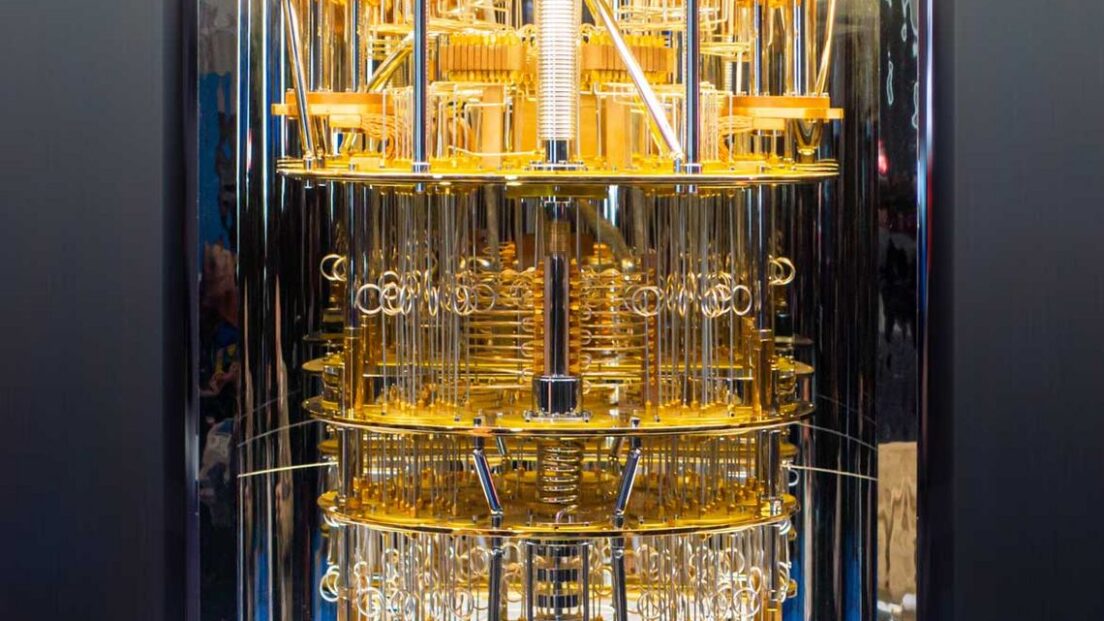ZHAW researchers successfully apply quantum computers in practice

Compared to classical computers, quantum computers can solve complex problems in parallel and thus faster, but they are also more prone to errors. ZHAW researchers are showing how the strengths of quantum computers can be used in a targeted manner with the aid of a hybrid approach.
Quantum computers not only know the state 0 and 1, but can represent several states between 0 and 1 through so-called qubits – analogous to bits of classical computers – and thus calculate many possible results simultaneously. However, qubits are susceptible to errors, for example due to external influences such as temperature fluctuations or electromagnetic radiation. But internal processes can also cause miscalculations, since the qubits only remain in a stable state for a short time. This is why the smallest possible algorithms are needed, with which quantum computers can calculate results as quickly as possible before the qubits become unstable.
Exploiting the strength of quantum computers in a targeted way
So far, there has mainly been theoretical work on how these advantages of quantum computers can be used in the field of quantum machine learning. However, this computer technology has hardly ever been applied in practice. ZHAW researchers have now, for the first time, chosen a new method with which quantum computers can achieve more precise results for complex problems. “Using a hybrid approach, we implemented the most complex part of an algorithm in a quantum computer, while still allowing a classical computer to calculate the remaining part,” explains ZHAW researcher Kurt Stockinger. The machine learning algorithm used here is used to classify objects. Since quantum computers are particularly strong in highly complex calculations, but offer no advantage over classical computers in simple tasks, a combination of both systems could actually be an efficient solution.
Tested with quantum computers from IBM
The ZHAW researchers conducted their experiments with a total of five data sets and had the calculations performed by quantum and classical computers and compared the results with each other. To do this, they used the option of docking directly onto an IBM quantum computer. In this way, they could simulate the calculation and have it actually performed by a quantum computer. The approach was tested, among other things, on the so-called iris data set, which contains information on flowers and is used to classify individual flower species. And indeed, the hybrid method led to more accurate results. “We were thus able to show that classical machine learning problems can be solved better by the hybrid approach than with classical computers,” Stockinger summarises the result.
Optimising neural networks with quantum computers
The ZHAW researchers also used neural networks because they can recognise complex patterns within large amounts of data on several layers. The team led by Kurt Stockinger and Rudi Füchslin used a weather dataset with many interdependent parameters such as humidity, air pressure or temperature and fed it into a neural network to obtain the result “rain” or “sunshine” at the end. “We implemented a certain layer of this network in the quantum computer. This makes it possible to calculate and look at several dependencies at the same time. This makes it possible to make much more accurate weather forecasts,” Stockinger describes the advantage of the method. “However, research here is still in its infancy, as further investigation is needed into how neural networks can be implemented most effectively in a quantum computer.”
Diverse possibilities for industry and science
“We have now moved from theory to application. This means that the technology is now also becoming interesting for companies,” says Stockinger. Many companies are also already showing great interest in the advantages of quantum computing, also with a view to the possibilities in security technology. “Banks in particular have a strong interest in this technology, as their encryption methods could be cracked by quantum computers,” explains the ZHAW researcher. The technology can also be used in many other areas, such as in the development of new and improved materials or medicines. “These are the same areas of application as for machine learning, with the crucial difference that quantum computers can deliver faster and more accurate results,” Kurt Stockinger sums it up.